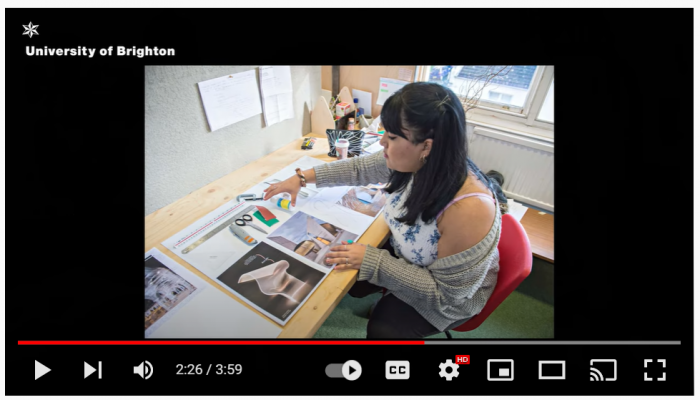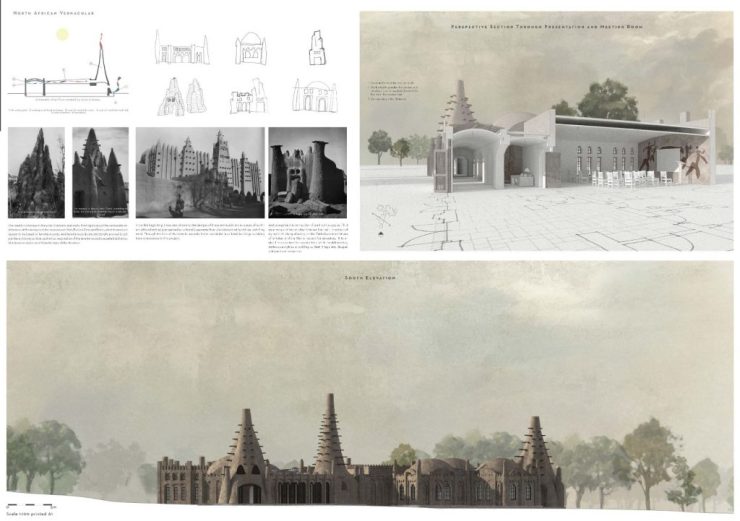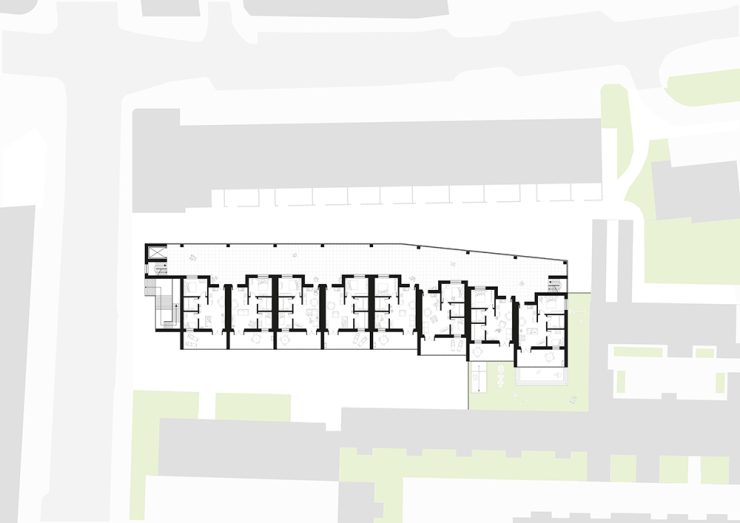Architectural researcher and educator Jordan Whitewood-Neal is leading research, conversation and action for disability justice in building design.
As Disability Awareness Month begins, University of Brighton architecture graduate Jordan Whitewood-Neal is leading a think tank at London School of Architecture, calling for the retrofit of buildings to better support disabled and ageing communities. “The architectural discipline has in the last few years finally begun to address race and gender inequities, but disability always trails behind,’ he said in a recent interview with the Royal Institute of British Architect’s RIBA Journal.
Having recently completed a master’s degree at Brighton, Jordan has been picked out by RIBA as one of its 2022 Rising Stars. “We can already see him making a difference to the way disability is talked about in projects and within the profession,” said Eleanor Young, one of the judges on the RIBA panel.
Describing himself as an activist as well as researcher, Whitewood-Neal has also co-founded the disability research collective Dis/, drawing on his own experiences as a wheelchair user. Teaming up with James Zatka-Haas and Anna Curzon Price, Dis/ grew out of an event at the London Festival of Architecture in which physically disabled and neuro-diverse creatives shared their experiences of navigating cities – stories Whitewood-Neal said usually remained “completely untold”.
By leading research and conversation alongside driving action for disability justice in architectural education and practice, he hopes to raise the profile of disabled people within the profession. “A fundamental issue in architectural practice is a scarcity of disabled architects and designers,” he said.
Dis/ aims to pair disabled architectural researchers with disabled people from outside the profession to talk critically about the city and the architectural needs of people with disabilities – and the struggles many needlessly face. Jordan sees this as not only spurring a consideration of disability as a critical part of the design process, but also a way to challenge the perceived homogeneity of disability – which too often looks no further than installing ramps.

Jordan said: “After finishing my Masters in Architecture at the University of Brighton I was offered the chance to continue my studies there and expand on my ideas on the Architectural Research MRes. Since starting the course, I have presented my work at various conferences and events as well as undertaken projects including developing a design studio brief titled Retrofit as Reparation that I will be co-leading at the London School of Architecture.
“My research project on the MRes, tutored by Ben Sweeting and Tilo Amhoff, gave me an opportunity to explore novel research methods, alongside more conventional forms of archival research. This research has led to wider work campaigning for more inclusive architectural teaching, as well as founding Dis.”
Follow Jordan Whitewood-Neal on Twitter: @Jordan_WN_







